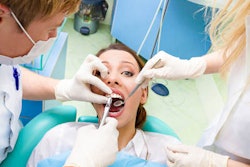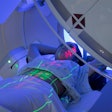
There is no effective screening for early oral cancer anymore. That's because about three-quarters of oral cancer hides behind the tonsillar pillars, in the posterior phalanx, or at the base of the tongue.
The primary cause of these cancers is no longer smoking and drinking, either. Human papillomavirus (HPV) is now the most common sexually transmitted disease, according to the Centers for Disease Control and Prevention (CDC). HPV is usually linked with cervical cancer in women; however, it probably causes more oropharynx cancers according to statistics from the CDC. Oral HPV is transmitted primarily through oral sex, which might make your educational component feel a bit more challenging.
My team practices total health dentistry, but we once struggled with discussing HPV-related oral pharyngeal cancer (HPV-OPC) with our patients. Then we developed a yearlong, 100% awareness campaign and built a strategy around it. Doing is learning, and we became much better at having these potentially uncomfortable dialogues with our patients. We hope the following seven tips will put you more at ease with your own patients.
7 tips
1. When to open the dialogue
 Susan Maples, DDS.
Susan Maples, DDS.My team and I open the dialogue while we are doing our regular oral cancer screening for patients.
We explain as we go that regular oral cancer screening has become an ineffective way to screen for oropharyngeal cancers, since most of these cancers are hiding in the back of the mouth and throat where they can't be seen.
We are clear in letting our patients know that these cancers are caused by HPV, the most widespread sexually transmitted infection of our time. We tell them that this is an epidemic that affects four times more men than women and is mostly preventable with the HPV vaccine.
2. Use evidence-based numbers to support your claims
To be truthful without exaggerating claims, do your research. State the truth of the issue. HPV is an epidemic, and its rise is unprecedented. As a healthcare professional, keep your cool, state the facts, and make yourself available for your patients' questions and concerns. Our team put together a compelling informational placard for patients to take with them with the alarming facts -- all evidence-based.
3. Don't glance over the topic of safe sex
The first incidence of oral sex happens in the teenage years. We chose to educate adults and not children or teens, but we encourage adults to talk to their children and make sure they understand that oral sex is not safe sex.
By having the conversation at the beginning of the appointment (during the oral cancer screening), patients are more inclined to ask questions when they have time and privacy and are encouraged to do so.
4. State the benefits of improving host immune response
Human papillomavirus infection can often be avoided, even after exposure, and can often be cleared, even after infection. Help your patients move toward optimal health. That means taking steps to improve their health:
- Improve nutrition by cutting out processed foods and incorporating whole foods.
- Improve the quality and quantity of sleep.
- Increase the amount of regular exercise.
- Avoiding dependence or binges of alcohol or drugs.
- Reduce the number of sexual partners, and practice safe sex.
- Maintain a healthy diet and lifestyle.
Once a patient contracts HPV, their immune system must be primed to combat the infection in the healthiest environment possible.
5. Encourage saliva testing for early detection
Many companies offer an accurate and affordable saliva test conducted in the dental office that allows for early detection of all 51 strains of HPV that have been detected in the mouth -- 25 of which have been linked to oral cancer. If positive, your patients can be retested in 12 to 18 months to check for persistent HPV infection, which is the cause of HPV-OPC.
If they test positive, they can inform their sexual partner(s) and also improve their health and immune system to hopefully clear the virus. Identification of HPV also helps your patients become hypersensitive to early signs of OPC. After all, beating cancer is all about early detection.
6. Encourage vaccination
We won't turn this epidemic around until we have the majority of young adults vaccinated. Your patients don't need to wait on test results to start receiving the Gardasil 9 vaccine series (Merck), which is indicated for anyone through age 26, according to the CDC.
Vaccination greatly reduces the risk of oropharyngeal cancer, as well as cervical, penile, anal, and vaginal cancers.
7. Encourage patients to spread the word
Rather than spread HPV, patients can spread the word to their friends and family that oral sex is not safe sex. Also, vaccination is critical for de-escalating this epidemic.
The clearer you are about the HPV-OPC topic, the more confident both your patients and your practice can be moving forward. Help your patients gain the confidence to take responsibility for their own health. It's good for your patients. It's good for you. It's great for the health of your total health dental practice as well.
Susan Maples, DDS, is a dentist, author, and health educator.
The comments and observations expressed herein do not necessarily reflect the opinions of DrBicuspid.com, nor should they be construed as an endorsement or admonishment of any particular idea, vendor, or organization.



















